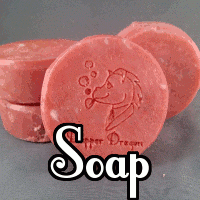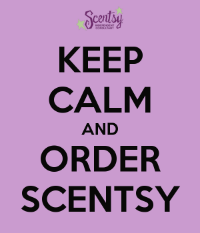
Through the wonder of sharing on Facebook, I came across an article that left me completely perplexed as to our priorities as women and why we would choose breastpumps to be mad at instead of empowering ourselves. I’ve decided to do my standard quote and answer treatment here in response to the article Ban the Breastpump by Judith Warner. Full text is at the link.
At another time, in another place, they would have been burned at the stake as witches.Why is pumping breastmilk “grotesque”? If these mothers are planning to use any dairy, presumably they’re okay with pumping milk from a cow. Why would it be any more “grotesque” to pump milk from a human? It’s just a simple functional way to remove milk from breasts. It’s only grotesque if we think it is.
In coming weeks, as the news of their heresy spreads, they will undoubtedly roast in the hellfire of mommy-blog vituperation.
“That was my least favorite thing I ever did in my whole life,” Washington writer Hanna Rosin says in a podcast conversation with three pals that accompanies her sure-to-be-controversial new feature, “The Case Against Breast Feeding,” on The Atlantic’s Web site.
She’s talking about pumping breast milk – the grotesque ritual carried out behind closed office doors nationwide by beleaguered working mothers who are fully “committed” (as the lactation consultants put it) to the goal of long-term, exclusive breast-feeding.
“The way your nipples can get stretched,” the others chime in. “… the nipple gets sucked into the plastic thing” … “and it hurts by the way” … “and you measure your success every day by now many ounces you produce.”If it hurts, you’re not doing it right, using too high a suction, or you’re using phalanges that are too small. In which case, pumping itself is not the issue. And success isn‘t measured every day by how much milk you produce. At least not by anyone else. If that’s how you measure your maternal success, that’s a problem. Not every mother let’s down well for a pump. And if a mother feels that way, she should deal with her own perception or give it up if she’s really miserable, but not try to ban the breastpump.
Rosin does an excellent imitation of a breast pump machine as the room erupts into laughter. “Who could blame [your husband] for never wanting to sleep with you again?”This sentiment floored me. What does pumping breastmilk have to do with your husband sleeping with you? Unless I was leaking, it never bothered my husband in the slightest. Of course, I didn’t bring the pump to bed, either. But my husband loves me, and breatfeeding and pumping are totally unrelated to the love we have for one another and how we express it. In fact, I’d be rather angry if he were so petty and shallow as to cut off a physical relationship because I was trying to feed the baby we’d made together.
“It’s the moment that kind of brings together all the awfulness of being a modern mother,” she says.I’m not going to strike her. I just think her ire is wildly misplaced. After all, no one put a gun to her head and forced her to pump breastmilk.
Hallelujah, I all but shouted at the computer, desperate to join in the conversation with these newfound sure-to-be best friends.
And then I flinched. And then I ducked, as though I expected the long arm of All That Is Decent to reach out from behind the screen to strike me.
Now, let me just be clear: I am no enemy of breast-feeding. I nursed both my daughters and would not take back that experience for all the world. But I did not breast-feed them exclusively. I had a mother who breast-fed in the mid-’60s despite the disgust of friends and family, and who insisted that my happiness depended on giving them one bottle of formula a day. I was in France, where their doctor started adding fruits and vegetables to their diet at about three or four months. And where it was easy, after a few miserable weeks, to give up on pumping milk, if only because it made me feel like a cow.So, let me get this straight: this particular mother didn’t breastfeed exclusively because she started solids early, and she didn’t pump for long because she didn’t like it and it made her feel like a cow. Well, great! She exercised her own free will. I breastfed my last 3 babies exclusively for almost a year before starting solids, and I continued to nurse them long after. I pumped at work at least twice a shift and never felt like a cow. That was my experience. Is mine any less valid that she should wish away something that made my life easier? After all, I would have been very uncomfortable by the end of my shift without my breastpump. And it bought me some nice quiet time in otherwise very hectic day.
Is it at long last possible – on this side of the Atlantic – to suggest that we’ve maybe taken “breast is best” a bit too far? That a mother’s need for some semblance of physical dignity is perhaps a right worth respecting?If you feel like you’ve lost all “semblance of physical dignity” then that’s your issue. Make different choices. But there are many of us who don’t feel that way. And, no, I don’t think we’ve taken the idea of “breast is best” too far. The statistics of people who breastfeed are woefully sad in this country where women are so objectified sexually that they become uncomfortable using their breasts the way they were designed and where breastfeeding support and education leaves many women feeling like failures before they’ve even really gotten started.
That supplementing with formula – if it makes for greater happiness (and emotional availability) in the baby’s most important caretaker – isn’t necessarily an act of gross irresponsibility?Who ever suggested that formula feeding or supplementing was a gross act of irresponsibility? It’s a personal choice! I’d much prefer a mother supplement with formula if that’s going to leave her more emotionally stable to meet the needs of her infant. And if that’s the best choice for you, then it shouldn’t matter what other people think. It’s none of their business anyway. But again, I don’t see how any of this is the fault of the breastpump.
Maybe. Maybe we’re even at a point where it’s permissible to insist that the needs of a mother and the needs of her baby, rather than being opposed are, in fact, linked, and that the best way to meet both is to scale down the demands now put on mothers and beef up support for them.Of course the needs of mother and child are linked. Though I vehemently disagree that the way to make mothers feel more supported is to discourage breastfeeding or pumping. Perhaps the best way to meet the needs of mothers is to empower them with information and allow them the freedom to make the best informed choices they can for their lives and their babies. I’m pretty pro-breastfeeding, but for some mothers it’s not the best choice, and that’s none of my business.
Rosin’s article, based upon a review of the relevant medical literature and some physician interviews, makes the case that the health claims about breast milk have been greatly overstated. There’s contradictory evidence, she writes, on the virtues of breast milk in combating allergies, leukemia, high cholesterol and diabetes. There is evidence that breast-feeding can help prevent diarrhea, and some indications that breast-feeding might hike up a baby’s I.Q. – by a more or less meaningless couple of points. But the cause of this intelligence boost is unclear. Are breast-fed babies very slightly smarter because they’ve been fed breast milk, or because they’ve been snuggled more closely, been cooed over more exclusively, or otherwise enjoyed any other hard-to-identify-or-isolate variables that simply can’t be controlled in the kinds of studies that currently exist and compare breast-fed and bottle-fed babies?This, in my opinion, is complete bollocks. The scientific evidence in support of breastmilk is vast. If there were any question as to it’s superiority, the formula companies would be jumping at the opportunity to point it out, and thus sell you on the convenience of their product. If breastmilk were not the gold standard, there would be no reason to strive to make their product as much like it as possible. But the fact is that breastmilk is the gold standard. If it’s not right for you, so be it. But there’s no need to cover up one’s own feelings about it with the grand lie that it’s probably not that good after all. It is that good.
There’s no way to know. After all, you can’t carry out randomized, controlled trials of baby-feeding. You can’t assemble a group of mothers of equivalent levels of education, income and physical and mental health, control for every possible variation in their emotional availability and parenting style, and then instruct half of them to breast-feed their children, while ordering the other half to bottle-feed for the sake of science. Which means, Rosin writes, that there really is no good science on breast-feeding.
I am sure that the American Academy of Pediatrics – which currently recommends six months of exclusive breast feeding and some breast feeding for at least a year – will soon speak up to refute Rosin’s conclusions, and that the Dr. William Sears-inspired attachment parenting crowd will soon assail her in the blogosphere. Whether her science is or is not on track, I cannot judge. But her argument raises questions that I believe are worth asking.Why can’t it be both? And frankly, she should be called on her reasoning. As I stated before, breastfeeding rates in this country are abysmal (so I hardly think it can be called a fetish). In 2003 70% of mothers started out breastfeeding in the hospital. By six months, only about 36% still reported that they were breastfeeding. By one year the rate was about 17%. We don’t need to be convinced of the convenience of formula. That’s pretty well established (although I find breastfeeding pretty convenient with no heating, washing of bottles, etc.). We women who support breastfeeding feel that we have enough of a battle convincing women of the benefits of breastfeeding, and erroneous logic, information, and science needs to be refuted when it’s presented.
Why have we made such a fetish of breast milk when there’s no evidence to prove whether, as Rosin puts it in the Atlantic video, “what’s key about breast feeding is the milk or the act of breast-feeding”?
Why, as a society, have we privileged the magic elixir of maternal milk over actual maternal contact, denying the vast, vast majority of mothers the kind of extended maternity leave that would make them physically present for their babies?We don’t have to choose between which of those things to encourage. We should encourage both! I absolutely believe that mothers should be home with their babies longer. Especially as a breastfeeding advocate!
Why do we keep sticking our heads in the sand, putting all the burdens of our half-changed society on women – their “choices,” their “priorities,” their bodies – instead of figuring out reasonable ways to make our new family lives work?I have no idea what the author means by this. Would she rather we didn’t have choices? Couldn’t decide our priorities? Couldn’t control our own bodies? And pumping breastmilk is a great choice for many women who are making their new family lives work. The wrong thing has been singled out as the enemy here. It’s not the breastpump that’s the issue. The problem is with women who are making their own personal expectations too high, striving for perfection instead of balance, and not learning to respect their own needs. And that will not be fixed by throwing out the breastpump.
Why do we, as women, accept all the guilt and pressure about breast-feeding that comes our way instead of standing up for what we need in order, in the broadest possible sense, to nourish and sustain ourselves and our families?I agree with that completely, if you remove the statement “about breastfeeding”. The issue of maternal pressure is so much larger than breastfeeding. And foisting formula (and the cost that goes with it) on women and babies everywhere will not make that go away.
“There’s this funny thing going on where women have worked for a long time. Almost 50 years. There’s been a tremendous change. Children still have to be raised. The equation doesn’t add up and everyone pretends it’s not happening,” Rosin says near the end of the video interview. “So I feel like when that step happens, there’ll sort of be a degree of ownership, that O.K., we have to make all these things happen at once. And formula will enter into that conversation.”When did formula leave that conversation? By six months over 60% of mothers aren’t breastfeeding. It seems that many people think formula feeding is easier. For me it wouldn’t have been. Not only because the engorgement would have been unbearable, but because it was one thing that still made me feel like a mother when I was away from my babies for a long shift. Taking that option away from women hardly seems like something that’s good for them. Formula isn’t in hiding. It’s on the end cap of almost every baby isle of every drug and grocery store in America. It’s breastfeeding that’s been largely driven underground. And like I said, the wrong enemy has been targeted. We women need to be looking at ourselves and the impossible standards we’ve set for ourselves. Setting nursing back 50 years isn’t the answer.
And she adds, “I’m hoping pump companies will just disappear.”And I pray that in these women’s zest to offer mothers freedom from their overburdened lives, they don’t take away the tools that help make many of our lives easier. I love my breastpump and will happily use it again when my next baby is born, and will encourage my daughters to use them someday too, if they choose to breastfeed. My dream involves women looking at the breastpump and remarking how glad they are that the art of breastfeeding wasn’t lost by a culture that valued it’s freedom over nurturing the relationships between mothers and their infants.
So am I. In fact, I hope that some day, not too long in the future, books on women’s history will feature photos of breast pumps to illustrate what it was like back in the day when mothers were consistently given the shaft. Future generations of female college students will gaze upon the pumps, aghast.
“Did you actually use one of those?” they’ll ask their mothers, in horror.
And the moms, with a shudder, will proudly say no.










No comments:
Post a Comment
I love comments!